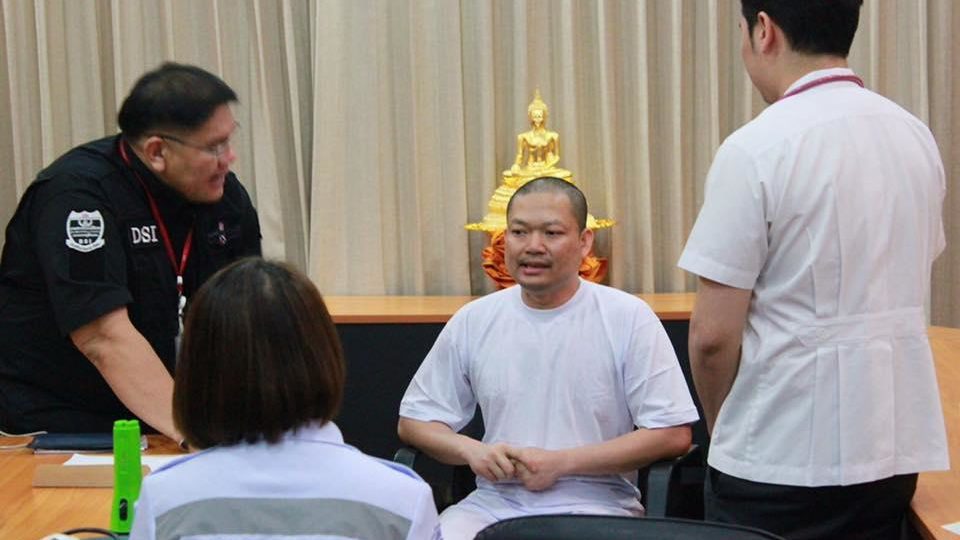A Thai court charged a disgraced former monk Thursday with the rape of an underage girl, fraud, and money laundering, after he was extradited from the United States.
Wirapol Sukphol, 38, was arrested on arrival at Bangkok’s Suvarnabhumi Airport late Wednesday from the U.S., where he had established an unofficial Buddhist teaching center after fleeing Thailand in 2013.
He faces a total of five charges, including raping a minor under 15 years old, which carries a jail term of up to 20 years.
The Criminal Court announced the charges against Wirapol after he arrived. The ex-monk, who has denied the charges, was taken to Bangkok Remand Prison after the hearing. He did not apply for bail, according to his lawyer.
Wirapol made headlines in 2013 when footage emerged of him with two other monks on a private jet wearing sunglasses and wielding Louis Vuitton designer bags—earning him the tabloid moniker the “jet-setting monk.”
A subsequent probe seized USD770,000 (THB25.9 million) of his assets, including a Porsche and a Mercedes Benz, and multiple bank accounts.
He is suspected to have fathered a child with the girl he allegedly raped.
The scandal-mired cleric went by the name Luang Pu Nen Kham when he was ordained, and claimed to be the reincarnation of a famous miracle-performing monk.
His temple, in the rural town of Si Saket, disrobed him after the allegations surfaced and he fled the kingdom.
But he continued to act as a monk, establishing his Buddhist center in California.
In May, a U.S. court ordered his extradition after a request from Thai authorities.
Sex, drugs and murder
Buddhism is weaved closely into the social fabric of Thailand. Most Thai men are expected by social convention to spend some time in orange robes.
It is a stint aimed at bestowing discipline, religious knowledge, and good karma on the monk and his family.
Yet the clergy is dogged by negative publicity, with recent extortion, sex, drugs, gambling, and murder scandals involving monks shocking the Thai public.
Buddhist authorities want to clean-up the image of the clergy and keep a tighter check on temple finances.
Last week, the Thai junta announced the idea of “smart ID cards” for monks to record any criminal history and prevent people using orange robes for personal benefit.
The junta is also engaged in a long-running feud with the Dhammakaya temple—a rich and powerful Buddhist sect whose give-to-receive narrative draws the allegiance of many wealthy Thai families.
In March of this year, the junta was left red-faced after it was forced to call off a weeks-long hunt for the sect’s former abbot at the 1,000-acre temple site on Bangkok’s outskirts.
The septuagenarian abbot, who is accused of embezzling USD33 million (THB740 million), evaded arrest despite a search of the temple by hundreds of security forces.




